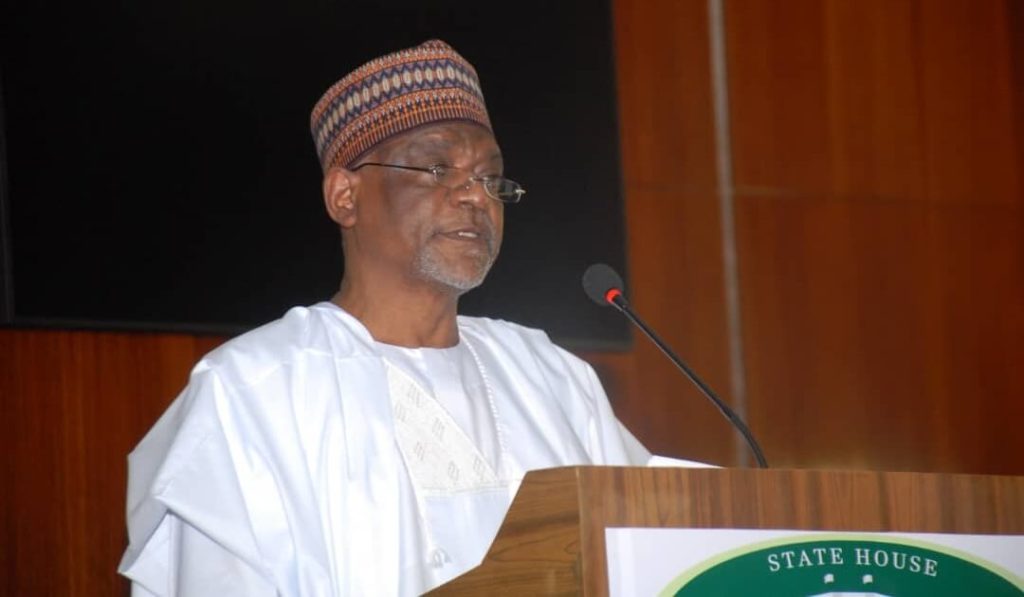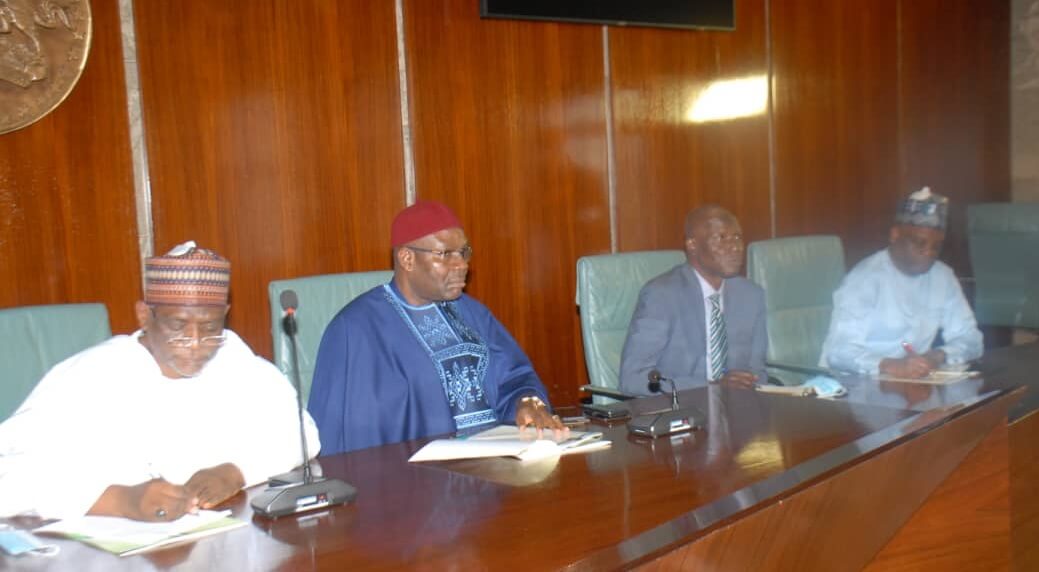ASUU: How Fresh Disagreement Stalled Negotiations – Education Minister
…Says Other Tertiary Unions To End Strike In One Week
The Minister of Education, Adamu Adamu, has announced that all tertiary education unions that are currently on strike will end their industrial actions within the next one week with the exception of the Academic Staff Union of Universities (ASUU).
Advertisement
The six striking unions are, the Academic Staff Union of Polytechnics (ASUP); Colleges of Education Academic Staff Union (COEASU); Non-Academic Staff Union of Allied and Education Institutions (NASU); Senior Staff Association of Nigerian Universities (SSANU); National Association of Academic Technologists (NAAT); and the Academic Staff Union of Universities (ASUU).
Adamu made this known on Thursday during the 47th Session of the State House Ministerial Briefing organised by the Presidential Communications Team at the Aso Rock Villa, Abuja.
According to the Minister, the first five unions had agreed to the terms that the government offered them at a previous meeting and are likely to call off the strike within one week, however, ASUU has a few more demands which the government has refused to consent to.
“I have 6 unions I am dealing with, ASUP, COESU, NASU, SSANU, NAAT and ASUU. Following the meeting with the President where the Education Ministry took control of the strike negotiations, one week after that meeting, I had given all unions the offer made by the government and all of them agreed to the offer, with the exception of ASUU.
Advertisement

“ASUU stated two conditions that would make them accept the offer, which I reported back to the government and they were turned down. After that I called the (2009 FG- ASUU) renegotiation committee two days ago, told them my decision with regards to ASUU’s conditions and instructed them to continue with the renegotiation and allow ASUU to tell them their official position. They met yesterday and the day before and ASUU is currently consulting their principals as well as their members on the campuses on whether or not to call of the strike,” he explained.
He revealed that the condition ASUU gave the government grant was the payment of their staff salaries for the months when they have been on strike.
“Let me just tell you that what ASUU is asking for is that they will accept the offer on ground if the Federal Government is willing to pay their salaries for the months they have not worked and I told them the Federal Government will not,” he said.
The Minister added that for the unions which had accepted the FG’s offer, the process of calling off a strike is not immediate. The union’s representatives need to go back and consult with the rest of their members before the strike will officially be called off.
Advertisement
“So, I can tell you that within the next one week, these five unions will call off the strike but I cannot say the same for ASUU,” he assured.
Adamu said the government’s decision to stop paying University staff or any government staff who go on strike could bring an end to the recurrence of strikes in the Nigerian tertiary education system.
“I think the stand which the Federal Government has taken to stop paying salaries for the months for which no work was done is the only means that the government can use to show that there is a penalty for behaviour like this, so I believe teachers will think twice before they join strikes if they know at the end they are not going to be paid.
“The Federal Government is not acting arbitrarily because prior to this, there was some magnanimity on its part seeing as there is a law which states that if there is no work, there will be no pay. So, this will be a very strong element that will deter many from going on strike,” he said.
Speaking on reports that the government has approved ASUU’s proposed payment platform, University Transparency and Accountability Solution (UTAS), the Minister said that UTAS was not approved by government but that results show that the platform, along with NASU and SSANU’s proposed payment platform University Peculiar Payroll Payment System (U3PS), are better than the Federal Government’s payment platform, Integrated Payroll and Personnel Information System (IPPIS).
“The government has not approved UTAS. What I know is that a committee has worked and tested the three platforms; IPPIS, UTAS and U3PS, and the preliminary results show that these two new ones (UTAS and U3PS) are better than IPPIS in so many respects but the decision of the government will depend ultimately on the report that is being readied now,” he said.
Advertisement
This briefing comes after the Union had a meeting with the Federal Government yesterday to discuss a possible end to the strike. The renegotiation committee represented the FG and the meeting was headed by Prof Nimi Briggs, the chair of the renegotiation committee.
THE WHISTLER reported however that the meeting did not yield any positive results as the FG did not have any new offers for the ASUU leadership and instead just begged them to put an end to the ongoing strike.
The ASUU strike began on February 14th and is now in its 6th month. The Union embarked on the strike to compel the government to fulfill its demands which include payment of earned allowances and salaries for lecturers, improved funding and maintenance for tertiary institutions, the adoption of the University Transparency and Accountability system (UTAS) for salary payment instead of the government’s Integrated Payroll and Personnel Information System (IPPIS), the renegotiation of the ASUU FG 2009 agreement, among others.
Meanwhile, COEASU embarked on a one-month strike on Tuesday, 14th June 2022, which they extended by three weeks on July 20th.
NASU and SSANU embarked on their warning strike together on Sunday, 27 March 2022 due to “the nonchalant attitude of the government” to their demands. The strike was initially meant to last for two weeks but was extended twice.
The first extension was announced on April 8th and it was billed to last for two weeks, and the second was announced on May 28th and lasted for one month.
Some of the unions’ demands include Integrated Payroll and Personnel Information System, unpaid earned allowances, and delay in the renegotiation of FGN, NASU, SSANU agreements, and nonpayment of minimum wage arrears.
NAAT, on its part, embarked on a two-week warning strike on March 22nd, which they had threatened to extend.
NAAT’s demands include the full implementation of the 2009 FGN/NAAT Agreement; the implementation of CONTISS 14 and 15 for academic technologists; payment of the arrears of earned allowances; and provision of funds for the upgrade of public universities’ laboratories, workshops, and studios.



